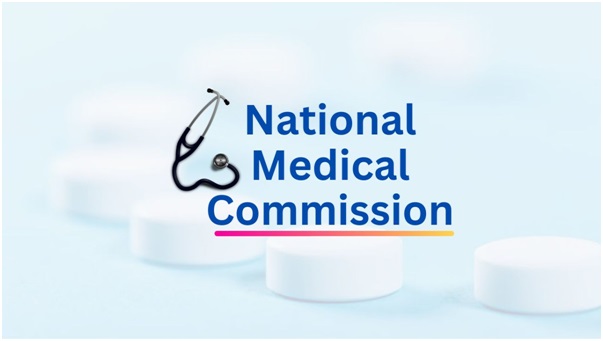National Medical Commission Delays Exclusive Generic Medicine Prescriptions (Indian Express)

- 26 Aug 2023
Why in the News?
The National Medical Commission (NMC) on Thursday put on hold its new guidelines that made it mandatory for doctors to only prescribe generic drugs.
What’s in the News?
- Amid criticism from the Indian Medical Association (IMA) and the Indian Pharmaceutical Alliance (IPA), the National Medical Commission has suspended the Medical Practitioner (Professional Conduct) Regulations, 2023.
- The Central Drugs Standard Control Organization (CDSCO), India's top drug regulator, also raised concerns about the language used in the notification.
- Stakeholder groups recommended that the guidelines be postponed until the implementation of WHO's good manufacturing practices.
- It was argued that exclusive generic drug prescriptions might lead pharmacies to sell generics with significant profit margins, potentially discouraging quality branded generic manufacturers.
Overview of the Medical Practitioner (Professional Conduct) Regulations, 2023:
- Released on August 2nd, the National Medical Commission introduced the Medical Practitioner (Professional Conduct) Regulations, 2023, aimed at reforming prescription practices.
- These regulations made it compulsory for registered medical practitioners to prescribe medications using terms like 'generic,' 'non-proprietary,' or 'pharmacological' names.
- According to these guidelines, a generic drug is defined as a product comparable to the brand/reference listed product in terms of dosage form, strength, route of administration, quality, performance characteristics, and intended use.
- Additionally, they described branded generic drugs as those that have gone off-patent are manufactured by various companies, and sold under different brand names.
- The guidelines emphasized that every Registered Medical Practitioner (RMP) should legibly prescribe drugs using generic names, promoting rational prescription practices by avoiding unnecessary medications and irrational fixed-dose combination tablets.
- The regulations also outlined punitive measures for those who breach these directives.
- Beyond generic drug prescribing, the NMC guidelines covered a wide range of issues, including continuing medical education, the use of social media platforms, and the maintenance of a dynamic register of doctors.
- They also prohibited doctors from participating in events sponsored by pharmaceutical companies.
- However, these NMC guidelines faced opposition from the Indian Medical Association (IMA).
Concerns Raised by the Indian Medical Association (IMA):
- In response to the regulations introduced by the NMC, the IMA released a statement outlining its concerns.
- The IMA highlights the primary obstacle to the adoption of generic drugs as the uncertainty surrounding their quality.
- They emphasize that the nation's quality control standards are significantly lacking, making it practically impossible to guarantee the quality of drugs. Prescribing drugs without assured quality, they argue, could jeopardize patient health.
- The statement further points out that less than 0.1% of drugs manufactured in India undergo quality testing.
- The IMA suggests that this step should be postponed until the government can ensure the quality of all drugs released into the market.
- Their statement firmly asserts that patient care and safety must not be compromised.
- The IMA has long advocated for the availability of only high-quality drugs in the country, with uniform and affordable pricing.
- They call upon the government to implement a 'one drug, one quality, one price' system, in which all brands are either sold at the same price or banned, allowing only generics while ensuring the highest quality of these drugs.
About National Medical Commission:
- The National Medical Commission (NMC) is a statutory institution established under the National Medical Commission Act of 2019.
- It succeeded the previously existing Medical Council of India (MCI), which had been in operation since 1934.
NMC's Key Objectives:
- Enhance accessibility to quality and affordable medical education.
- Ensure the availability of sufficient and high-quality medical professionals throughout the country.
- Promote equitable and comprehensive healthcare with a focus on community health and universal access to medical services for all citizens.
- Encourage medical professionals to integrate the latest medical research into their practice and contribute to ongoing research.
- Conduct transparent periodic assessments of medical institutions.
- Maintain a comprehensive medical register for India.
- Uphold rigorous ethical standards across all facets of medical services.
- Establish an effective grievance redressal mechanism.
NMC Composition:
- The NMC comprises 25 members, the majority of whom are nominated by the Central government.
- The tenure of NMC members is four years, except for part-time members, who serve for two years.
- Eleven part-time members represent states or state medical councils.
- Notably, NMC chairpersons and other members appointed by the Central government cannot be reappointed.
- Decisions within the Commission require approval from the majority, with a minimum of 13 out of 25 members' agreement.
